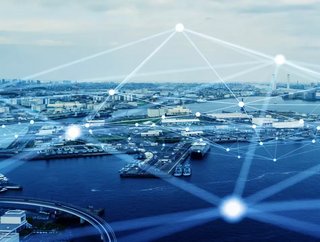RAIN RFID, IoT and AI are key to a proactive supply chain

Across supply chains around the world, we have seen leading companies rely heavily on technologies like AI and IoT during the pandemic. These digital solutions have enabled businesses to accurately capture and ultimately use their own first-party data to drive efficiencies and protect increasingly fragile bottom lines.
However, what is less commonly known is the increasing role of RAIN RFID technology in supporting IoT solutions. By using RAIN RFID to capture item data and then feed that data into AI systems, businesses can identify inefficiencies within the supply chain and make informed decisions.
What is RAIN RFID?
In short, RAIN RFID is a powerful IoT technology that enables itemised data collection. By applying small, battery-free tags to items, organisations can identify, locate, and authenticate each of those items, scanning up to thousands of items simultaneously with a variety of devices, including hand-held, fixed and wearable readers.
RAIN RFID solutions dramatically improve the operational capabilities of an organisation by ensuring they have exactly the right items, in the right quantities, at the right locations, at the right time. During the pandemic, RAIN RFID solutions have been key to limiting disruptions in retail and manufacturing supply chains, most notably by increasing inventory and asset visibility and improving the management and flow of goods.
Three ways RAIN RFID helps solve supply chain concerns
RAIN RFID is used to streamline processes, maintain real-time inventory, increase productivity, and help manage labour shortages. We see three key ways RAIN RFID helps solve supply chain concerns:
- Automate shipment verification: Today, significant labour is required for multiple, manual barcode scans during the shipment process. RAIN RFID tags can be read automatically without a direct line of sight, erasing the need for workers to pause, locate a barcode, and scan it. By using RAIN RFID, supply chain leaders can automate their shipment verification process and improve warehouse efficiencies by up to 25%.
- Deliver real-time visibility: Retail Systems Research says that 76% of supply chain survey respondents reported that real-time inventory visibility was their leading focus for improving performance. When supply chain managers lack information about the status of assets and shipments moving into and out of warehouses, confidence and productivity suffer. By using RAIN RFID, supply chain leaders gain real-time visibility into an item’s identity, usage, and location. With this information, they can quickly find inventory and assets, and reduce the cost of asset investments.
- Improve order accuracy: Today, companies rely on redundant manual checks to verify that the right cartons are loaded onto the correct pallets. By using RAIN RFID, supply chain leaders can automate pallet build verification to streamline the process and increase order accuracy. In fact, a recent study by Auburn University found that RAIN RFID can help an organisation achieve up to 100% order accuracy, eliminating claims costs and unhappy customers.
RAIN RFID can increase value of AI-powered analytics
In today’s AI-driven, rapid decision-making business environment, RAIN RFID is uniquely capable of making systems more effective. This is because it provides item identifiers for tracking and locating billions of items, from clothing to food, pharmaceuticals, tools, packages, pallets, and more.
It also works without line-of-sight, providing visibility into places and processes not previously available. The data provided by a RAIN RFID system can give AI-powered solutions the ability to see individual items throughout the supply chain, understand how the entire supply chain is functioning and identify which areas can be improved.
As companies accelerate digital transformation, we expect to see a rise in interconnected data as investments into new technologies and IoT surge. But as the volume of real-time and accurate data about the movement of goods rises, so too do the demands on operations teams to make sound business decisions quickly and with confidence, often using AI-powered systems that thrive on improved data to make better decisions.
As an example, over the past several years, Delta Airlines transformed its customer experience by investing in technology including real-time RAIN RFID bag tracking and automatic check-in via the Fly Delta mobile app. Delta is now leveraging this set of investments in their implementation of an AI-driven platform that analyses millions of operational data points, from luggage movement to aircraft positions to flight crew restrictions to airport conditions. This system simulates operating challenges and creates hypothetical scenarios that help Delta’s professionals make critical operational decisions that improve the overall customer experience.
Looking forward
The need to drive digital transformation rapidly during the pandemic has made supply chain and logistics professionals increasingly tech savvy. As we prepare for a post-pandemic era, companies’ increased know-how and awareness of solutions like RAIN RFID, IoT and AI will play a key role in evolving the industry’s approach to solving supply chain issues from reactive to proactive, setting them up for future success.
Jill West is Vice President ofStrategic Communications at Impinj






